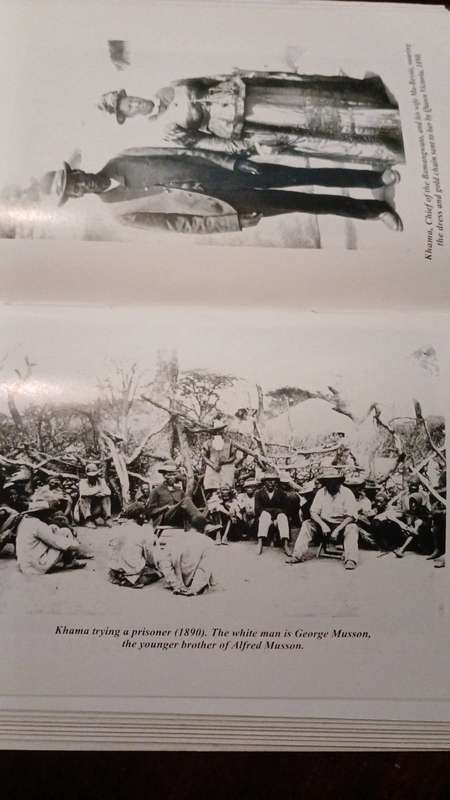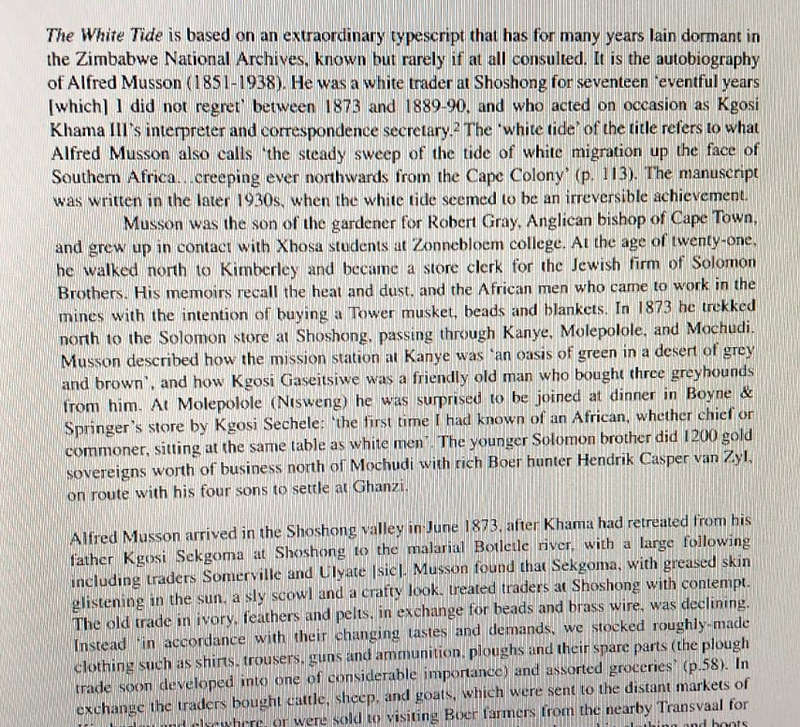



The White Tide ( Kgosi Khama III interest)
Check my rate
| Main centres: | 1-3 business days |
| Regional areas: | 3-4 business days |
| Remote areas: | 3-5 business days |




| Main centres: | 1-3 business days |
| Regional areas: | 3-4 business days |
| Remote areas: | 3-5 business days |
Modern Press, Zimbabwe, 2002, hardcover, burgundy boards with lettering to spine, illustrated, 212 pages, no dust jacket otherwise condition: very good.
see second image for content.
Khama III (c. 1837 21 February, 1923), referred to by missionaries as Khama the Good also called Khama the Great, was the Kgosi (meaning king) of the Bangwato people.
Malope, a chief of the Bakwena, led his people from the Transvaal region of South Africa into the southeast territory of Botswana. Malope had three sons Kwena, Ngwato, and Ngwaketse each of whom would eventually break away from their father (as well as from each other) and form new communities in neighboring territories. This type of familial break between father and sons (and then between sons) was historically how ethnic communities proliferated throughout the southern African region.